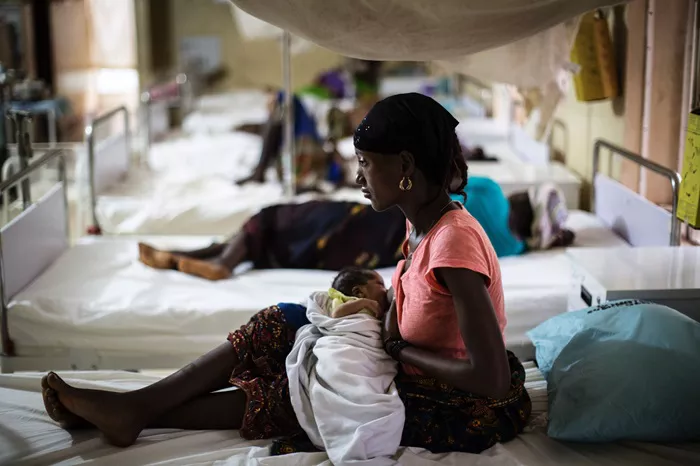Breastfeeding plays a crucial role in ensuring child health, with the World Health Organization (WHO) and UNICEF recommending that babies be breastfed within an hour of birth, exclusively for the first six months, and continue for two years or more alongside other foods. However, infectious disease emergencies, such as Ebola outbreaks, pose significant risks to both mothers and infants, challenging the continuity of breastfeeding and raising questions about safety.
Ebola, a deadly viral infection, is transmitted through close contact, often leading to severe symptoms including fever, headache, muscle pain, vomiting, diarrhea, and bleeding. Pregnant women and infants are particularly vulnerable during outbreaks. Unfortunately, Ebola tends to affect countries where breastfeeding is essential for child survival, such as Uganda, which declared an outbreak in January 2025.
While breastfeeding offers essential immune protection through breastmilk, which helps infants fight infections, the risk of passing Ebola via close contact or potentially through breastmilk remains a critical concern. However, separating mothers and babies or halting breastfeeding also carries its own dangers, leaving infants without the protective benefits of breastmilk and making them more susceptible to serious illness.
Balancing Protection and Risk During Ebola Outbreaks
The WHO has provided guidance on how to manage breastfeeding mothers and infants during Ebola outbreaks, but these recommendations are based on limited and low-quality evidence, relying more on expert opinions than concrete research. Notably, research on Ebola’s impact on breastfeeding has been largely overlooked, with much more data available on the virus’s effects on semen than on breastmilk.
A recent publication in The Lancet Global Health outlines a roadmap for much-needed research to ensure that mothers and babies can be protected during outbreaks. Experts have identified several key unknowns regarding Ebola’s transmission through breastmilk, the safety of expressed milk, and whether vaccination of mothers could protect breastfed infants.
Critical Knowledge Gaps and Uncertainty
There are several critical questions that remain unanswered:
- Can breastmilk transmit Ebola, and if so, for how long?
- Is expressed breastmilk safe, and can it be treated to remove the virus?
- Should breastfeeding continue if both mother and baby are infected with Ebola?
- Does vaccinating mothers against Ebola protect their breastfed infants?
- What are the risks for infants breastfed by mothers infected with Ebola?
These gaps in knowledge may lead to misinformed decisions during outbreaks. For instance, mothers may hesitate to get vaccinated due to concerns about their babies’ safety, which ultimately puts them at greater risk of contracting Ebola. Alternatively, stopping breastfeeding may leave infants vulnerable to other life-threatening infections.
The Need for Immediate Action
The lack of research on breastfeeding during Ebola outbreaks has long been a point of concern, but concrete steps to address this issue have been insufficient. In response, a research roadmap has been developed to include various groups of breastfeeding mothers affected by Ebola, such as those receiving vaccinations, those who are ill, recovering, or asymptomatic, and the broader population in affected communities.
This research is essential to protect both mothers and infants during future outbreaks. While conducting studies in the midst of an emergency is challenging, preparations can be made beforehand, and research on vaccination safety can be conducted outside of outbreaks.
Addressing the “Female Data Gap”
The failure to address these critical research needs is part of a broader issue known as the “female data gap,” where the experiences, bodies, and health needs of women are often overlooked. The Universal Declaration of Human Rights affirms the right of mothers and children to special care and assistance. It is time for governments, researchers, and health organizations to prioritize research that will protect vulnerable mothers and children during Ebola outbreaks and beyond.
The commitment to filling this research gap is not only necessary but urgent. Without it, the health and survival of mothers and babies in Ebola-affected regions will remain at risk.
Related topic:
Study Finds Ethnic Disparities in Brain Health Among Rural Aging Adults
Study Reveals Global Gaps in Mental Health Treatment
Study Reveals Cannabis Warnings Ineffective for Pregnant Users

